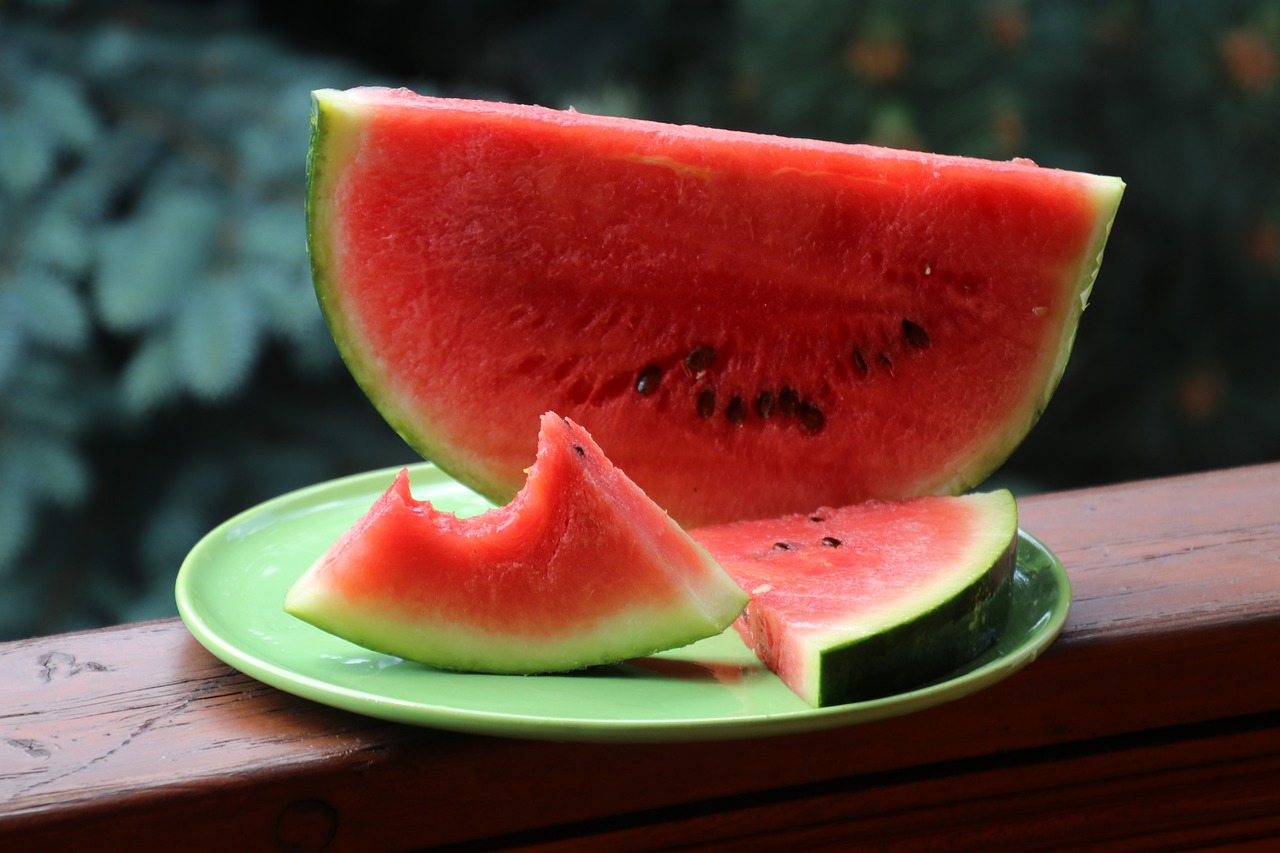Watermelon is a delicious and refreshing summer fruit that is enjoyed by many. On the other hand, if you adopt a ketogenic diet, you may wonder if it is suitable for you to eat. In this article, we will discover the nutritional profile of watermelon and whether or not it fits within the guidelines of a ketogenic diet.
Suppose you are new to the keto diet or have been following it for a while. This article will provide valuable information for anyone looking to enjoy watermelon while staying on track with their health goals. We will also give some tips on how to incorporate watermelon into your diet while still maintaining ketosis.
Can you Eat Watermelon on Keto?
The ketogenic diet limits carbohydrates to only 5 to 10 percent of daily calories, which for most people translates to 20 to 50 grams daily. It is 20 to 50 grams of net carbs, calculated as total carbs minus total fiber in a food. 11.5 grams of total carbs and.5 grams of real fiber are present in a cup portion of sliced watermelon.
Thus, 11 grams of net carbohydrates are present in 1 cup of diced watermelon. In other words, watermelon can fit within the ketogenic diet, depending on how you distribute your daily carbs. It won’t have to be off-limits if you’re aware of this, even though it may make up more than half of your daily allocated carbohydrates.
Overall, apples and bananas have more carbs per serving than watermelon. Berries, which all have 9 grams or less of net carbohydrates in a 1-cup serving, are a good choice if you’re seeking fruit with even fewer carbs.
Watermelon has a high Glycemic Index and is considered a high-carb food. However, there are ways to eat watermelon on a Keto diet without exceeding your carbohydrate limit. A good option is to consume at least a 1/4 cup. A half cup is okay, too.
Low-Carb
When considering whether you can eat watermelon on a ketogenic diet, it is important to take into account its glycemic load (GI), which refers to the speed at which your blood sugar levels are raised. Generally, fruits with higher amounts of fiber have a lower GI.
Watermelon is a high-carb food, so it is important to limit the amount you consume. While watermelon contains plenty of antioxidants and vitamin C, it is generally higher in sugar and net carbohydrates. It may raise your blood sugar levels more quickly than you’d like.
A 100-gram serving of watermelon has seven grams of net carbs, so if you’re on a keto diet, you should stay away from it. However, if you’re following a lower-carb diet, you can enjoy a small amount of watermelon if you can moderate your portions. Watermelon is very sweet, so you’ll want to limit your legs as much as possible.
Glycemic Index
Watermelon is a healthy fruit to eat while on a ketogenic diet. This low-carb fruit contains 92% water, making it ideal for staying hydrated. The good news is that watermelon is not high in glycemic index, and its fiber and vitamin content is also noteworthy. And while it contains a lot of sugar, it’s a natural, simple type of sugar.
Finally, the benefits of watermelon far outweigh the drawbacks. It was classified as a high-GI food in 2008 but changed to low-GI in 2021. It is still a good low-carb option, but you may need to adjust your portion sizes accordingly. Watermelon, a low-carb fruit, can fit nicely into a ketogenic diet if you don’t eat more than half a cup daily.
Although it is a low-carb option due to its low GI content, it can be a great way to curb your sugar cravings, and its water content makes it a great choice to eat in small portions. Aside from being low-glycemic, watermelon is also very versatile, with numerous keto-friendly recipe possibilities. You can add it to salads, snack on it, or freeze it for an icy treat!
Glycemic Load
One important factor to consider when preparing a meal for ketogenic dieters is the glycemic load of foods. This is how quickly carbohydrates are absorbed into the bloodstream. Foods high in fiber typically have a lower glycemic load than foods high in sugar.
Although watermelon is high in antioxidants and vitamins, its high sugar and net carbohydrate content means a small portion should be consumed. Lycopene, the carotenoid antioxidant that gives the fruit its red color, is abundant in the fruit.
This substance can potentially help prevent many types of cancer and heart disease. A cup of diced watermelon contains approximately 11 grams of net carbohydrates, which are the carbohydrates that your body absorbs.
The glycemic index can be used to determine whether watermelon is suitable for ketogenic diets. For example, a medium apple has a glycemic index of 38 and a glycemic stack of six. On the other hand, a cup of chopped watermelon has a GI of 72 and a low glycemic load (GL of 3).
Additional Fruits that are Suitable for the Keto Diet:
When it comes to the ketogenic diet, many assume that fruits are off the menu due to their natural sugar content. However, a number of fruits can be included in a healthy ketogenic diet. Berries are a great option, as they are low in carbohydrates and high in fiber.
Raspberries, blackberries, and strawberries are all suitable for the keto diet. These fruits are also packed with antioxidants, which can aid in reducing inflammation and improving overall health. Another keto-friendly fruit is the tomato. Tomatoes are a great source of the antioxidant lycopene and are also low in carbohydrates.
They can be enjoyed in various ways, including diced in a salad or blended into a sauce. Avocados are another keto-approved fruit. They are high in healthy fats and low in carbohydrates, making them a great addition to any ketogenic meal. They can be mashed and used as a spread or diced and added to a salad. Olives and lemons, and limes are also keto-friendly.
Fruits contain natural sugars, and consuming too much can kick you out of ketosis. Olives are a great source of healthy monounsaturated fats, while lemons and limes can add flavor to meals without adding carbohydrates. It’s important to remember that while these fruits are suitable for the ketogenic diet, they should still be consumed in moderation.
A ketogenic diet allows for the consumption of many different fruits. They are all low in carbs and nutrients, making berries, tomatoes, avocados, olives, lemons, and limes perfect for a ketogenic diet. It’s crucial to watch your macronutrient consumption and always eat these fruits within the limit. It’s always recommended to keep track of your macro and micronutrients while following a ketogenic diet.
Is Watermelon a Sugary Fruit?
There are natural sugars in watermelon. Sugar can be found in watermelons and other fruits (about 10 grams per whole cup, diced).
Although it is a naturally occurring sugar, fruit contains other nutritional elements, including water, fiber, and vitamins. Your blood sugar level could be affected by this, depending on your diet as a whole and how much watermelon you eat.
How Quickly does Keto Help you Lose Weight?
The keto diet alters how your metabolism functions by encouraging your body to produce energy from ketone bodies rather than glucose. It’s possible to lose up to ten pounds within the first several weeks. After that, your weekly weight loss may range between one and two kilograms.
The first month often sees a loss of 10 to 12 pounds. To teach your body to destroy fat instead of sugar (glucose), she adds that keto-adaptation and fat adaptation can take weeks. For this reason, it’s crucial to stick with it for the duration of the diet.
Reference: Ketogenic diets for weight loss: A review of their principles, safety, and efficacy
Despite concerns that they are sometimes quite high in fat, ketogenic, low-carb diets have generally been demonstrated to compare favorably with low-fat diets regarding weight reduction and improvements in triglyceride and high-density lipoprotein levels.
The literature on the safety and effectiveness of ketogenic diets for weight loss is summarised in this review, including a brief introduction to ketone body metabolism.
What are the Health Benefits of Watermelon?
Watermelon is an excellent source of potassium, a nutrient required for normal heart and nerve function. It also keeps you hydrated. It also contains the antioxidant lycopene, which gives it its red color. Lycopene may also lower your risk of developing certain cancers and heart conditions.
It has been shown to help improve vision and lower the risk of age-related eye diseases. Its high water content enables you to maintain a normal water level in your body, which helps flush toxins from your system. Watermelon is also high in vitamin C, which helps your immune system and your body’s ability to fight disease.
Watermelon has a low carb content, making it a keto-friendly food. It also contains vitamin A, which promotes eye and skin health. It also contains vitamin B6 and potassium, necessary for proper nerve function and blood pressure control.
Watermelon is delicious as a snack, dessert, or in salads and cocktails. It not only has numerous health benefits, but it also tastes delicious. However, it would be best to eat small portions to reduce the calories and carbs you consume daily.
What are the Potential Risks of the Keto Diet?
Recently, many people have developed an interest in drastically reducing their daily intake of carbs, usually to lose weight. Growing in popularity is the ketogenic diet. The ketogenic diet can be extreme, and it is important to remember that. Additionally, some evidence suggests that short-term side effects from ketogenic diets may occur.
It’s important to note that scientists are still determining the health benefits of ketogenic diets. This is because of the complexity and wide range of influences on dietary science. Before coming to any conclusions, scientists must carry out extensive research.
A wide range of circumstances influences a person’s health. Because of this, it may take a while for experts to determine the actual effects of a particular diet. A few of these include:
- dizziness
- nausea
- vomiting
- fatigue
- insomnia
- headache
- constipation
- exercising is challenging.
Conclusion
If people consume watermelon in moderation, it may be keto-friendly. For many other fruits, this rule applies. In general, anyone considering adopting a ketogenic diet should see a physician, a qualified dietitian, or both before making any decisions.
For those who have diabetes, this is crucial because abrupt changes to a ketogenic diet might result in hypoglycemia. As with any fruit, it’s important to know how much you can eat in a day. Some keto diet regimens limit carbs to 50 grams per day, so it’s important to check the carb content of all foods before you eat them.

